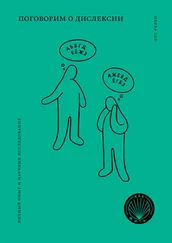Ray I.B., Menezes A.R., Malur P., Hiltbold A.E., Reilly J.P., Lavi S.J. Meditation and coronary heart disease: a review of current clinical data. Oxner J. Winter 2014; 14 (4): 696—703.
Дислипидемия – нарушение липидного обмена в крови.
Walton K.G., Fields D.Z., Levitsky D.K., Harris D.A., Pugh N.D., Schneider R.H. Reducing the risk of cortisol and cardiovascular disease in postmenopausal women: a pilot study using the Transcendental Meditation program. Ann NY Acad Sci. December 2004. 1032: 211—215.
Kanitz J.L., Camus M.E., Seifert G . Keeping the balance – An overview of mind-body therapies in pediatric oncology. Complement Ther Med 21 (suppl 1):S20-S25, 2013.
Carlson L.E., Speca M., Patel K.D., et al. Mindfulness-based stress reduction in relation to quality of life, mood, symptoms of stress, and immune parameters in breast and prostate cancer outpatients. Psychosom Med 65:571—581, 2003.
Reich R.R., Lengacher C.A., Alinat C.B. et al. Mindfulness-based stress reduction in post-treatment breast cancer patients: Immediate and sustained effects across multiple symptom clusters. J Pain Symptom Manage 53:85—95, 2017..
Würtzen H., Dalton S.O., Elsass P. et al. Mindfulness significantly reduces self-reported levels of anxiety and depression: Results of a randomised controlled trial among 336 Danish women treated for stage I—III breast cancer. Eur J Cancer 49:1365—1373, 2013.
Schellekens M.P.J., van den Hurk D.G.M., Prins J.B., et al: Mindfulness-based stress reduction added to care as usual for lung cancer patients and/or their partners: A multicentre randomized controlled trial. Psychooncology. March 23, 2017.
Lengacher C.A., Reich R.R., Paterson C.L. et al. Examination of broad symptom improvement resulting from mindfulness-based stress reduction in breast cancer survivors: A randomized controlled trial. J Clin Oncol 34:2827—2834, 2016.
Harinath K., Malhotra A.S., Pal K. et al. The influence of hatha yoga and Omkar meditation on cardiorespiratory activity, psychological profile and secretion of melatonin. J Altern Complement Med. 2004; 10: 261—8.
Carlson L.E., Beattie T.L., Giese‐Davis J., Faris P., Tamagawa, R., Fick L.J., Degelman E.S., Speca M. Mindfulness‐based cancer recovery and supportive‐expressive therapy maintain telomere length relative to controls in distressed breast cancer survivors. Cancer. 2015. 121: 476—484. doi:10.1002/cncr.29063
Greenlee H., Balneaves L.G., Carlson L.E., et al. Clinical practice guidelines on the use of integrative therapies as supportive care in patients treated for breast cancer. J Natl Cancer Inst Monogr 2014:346—358, 2014.
Le Nguyen K.D. Lin J., Algoe S.B. at al. Loving-kindness meditation slows biological aging in novices: Evidence from a 12-week randomized controlled trial, Psychoneuroendocrinology, V. 108, 2019. P. 20—27. https://doi.org/10.1016/j.psyneuen.2019.05.020
Paudyal P., Jones C., Grindey C., Dawood R., Smith H. Meditation for asthma: Systematic review and meta-analysis. J Asthma. 2018 Jul; 55 (7):771—778. doi: 10.1080/02770903.2017.1365887
Kraemer К. М., McLeish А. Evaluating the role of mindfulness in terms of asthma-related outcomes and depression and anxiety symptoms among individuals with asthma, Psychology, Health & Medicine, 2019. 24:2, 155—166, DOI: 10.1080/13548506.2018.1529326
Kurd S.K., Troxel A.B., Crits-Christoph P., Gelfand J.M. The risk of depression, anxiety, and suicidality in patients with psoriasis: a population-based cohort study. Arch Dermatol. 2010 Aug.146 (8):891—5. doi: 10.1001/archdermatol.2010.186
McDonough E., Ayearst R., Eder L. at al . Depression and Anxiety in Psoriatic Disease: Prevalence and Associated Factors. The Journal of Rheumatology. April 2014. jrheum.130797; DOI: https://doi.org/10.3899/jrheum.130797
Kabat-Zinn J., Wheeler E., Light T., Skillings. A, Scharf M.J., Cropley T.G., Hosmer D., Bernhard J.D. Influence of a mindfulness meditation-based stress reduction intervention on rates of skin clearing in patients with moderate to severe psoriasis undergoing phototherapy (UVB) and photochemotherapy (PUVA). Psychosom Med. 1998 Sep-Oct; 60 (5):625—32.
Fortune D., Richards, H., Kirby B., Bowcock S., Main C., Griffiths C. A cognitive‐behavioural symptom management programme as an adjunct in psoriasis therapy. British Journal of Dermatology. 2002. 146: 458—465. doi:10.1046/j.1365—2133.2002.04622.x
Bhasin M.K., Denninger J.V., Huffman J.S. at al. Specific transcriptome changes associated with a decrease in blood pressure in patients with hypertension after training with a response to relaxation. J Altern Complement Med. May 2018. 24 (5): 486—504. doi: 10.1089 / acm.2017.0053.
Tavee J., Rensel M., Planchon S.M., Butler R.S., Stone L . The effect of meditation on pain and quality of life in multiple sclerosis and peripheral neuropathy: an experimental study. Int J MS Care. Winter 2011; 13 (4): 163—8. doi: 10.7224 / 1537-2073-13.4.163. PMID: 24453721; PMCID: PMC3882962.
Zeidana F., Susan K., at al. Mindfulness meditation improves cognition: Evidence of brief mental training Consciousness and Cognition. Vol. 19. Is. 2. June 2010. P. 597—605. https://doi.org/10.1016/j.concog.2010.03.014
Davidson R.J., Lutz A. The Brain of the Buddha: Neuroplasticity and Meditation. IEEE Signal Process Mag. Jan 2008. 1; 25 (1): 176—174. doi: 10.1109 / msp.2008.4431873.
Дивергентное мышление позволяет генерировать много новых идей. Он измеряется с помощью так называемого метода «Задачи альтернативного использования», когда участники должны продумать как можно больше вариантов использования конкретного объекта. Конвергентное мышление, с другой стороны, представляет собой процесс, посредством которого генерируется одно возможное решение для конкретной проблемы. Это измеряется с помощью метода Remote Associates Task.
Colzato L.S., Ozturk A., Hommel B. Meditate to create: the impact of focused-attention and open-monitoring training on convergent and divergent thinking. Front. Psychology. 2012. 3:116. doi: 10.3389/fpsyg.2012.00116
Slagter H.A., Lutz A, Greischar L.L., Francis A.D. et al. Mental Training Affects Distribution of Limited Brain Resources. PLoS Biology. 2007. 5 (6): e138. https://doi.org/10.1371/journal.pbio.0050138
Апоптоз – регулируемый процесс программируемой гибели клеток, в результате которого клетка распадается на отдельные апоптотические тельца, ограниченные плазматической мембраной. В организме среднестатистического взрослого человека в результате апоптоза погибает ежедневно порядка 50—70 миллиардов клеток. Эритроцитов, других короткоживущих клеток, ежедневно погибает около 2 миллиардов. Общее количество клеток оценивается в размере 100 триллионов. Для среднестатистического ребенка в возрасте от 8 до 14 лет число клеток, погибших путем апоптоза, составляет порядка 20—30 миллиардов в день. (Banfalvi G. Apoptotic chromatin changes. Springer science, 2009.)
Читать дальше












